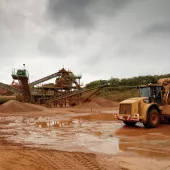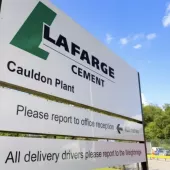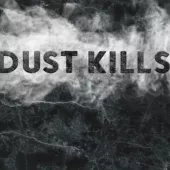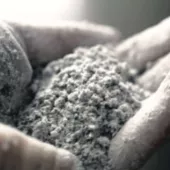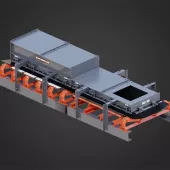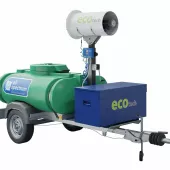Longcliffe Quarries choose DISAB BagVac industrial vacuum unit
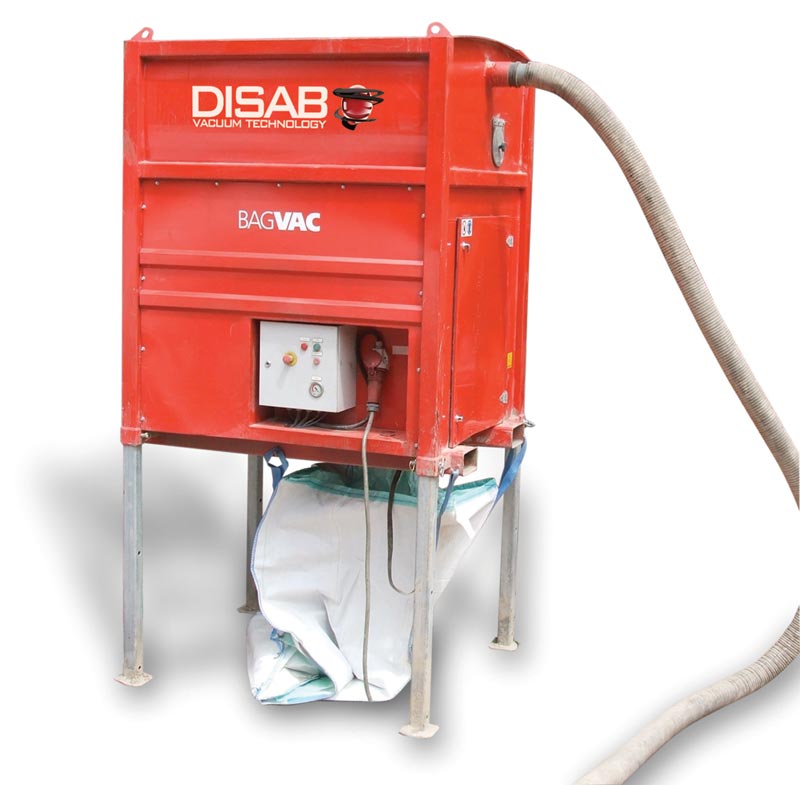
First published in the December 2013 issue of Quarry Management as Spick and Span
DISAB BagVac proves a sound investment for Longcliffe Quarries
Longcliffe Quarries, one of the UK’s leading calcium carbonate producers, are said to be delighted with the results their new DISAB BagVac industrial vacuum unit is achieving in terms of cleaning and housekeeping standards.
Having trialled a hire unit for six months at Brassington Quarry, near Matlock, the results were sufficiently impressive that the company went ahead in April this year and purchased a new BagVac unit from DISAB UK, the British arm of the DISAB group, who make what many regard as the world’s best industrial vacuum applications, ranging from mobile vacloaders to centralized vacuum systems.
Expressing his satisfaction with the DISAB BagVac, Longcliffe Quarries’ operations director, Chris Wainwright, said: ‘We have a two-pronged approach to spillage: deploying improved engineering solutions to encapsulate the dust at source, as well as pursuing a more effective cleaning regime. The BagVac helped us address and achieve key operational objectives including reduced dust generation and exposure, improved housekeeping, and increased efficiency.’
Longcliffe are one of the largest producers of high-quality calcium carbonates in the UK, extracting, processing and delivering more than 4,000 tonnes of limestone products every working day for the agriculture, building products, construction, environment, glass and ceramics, plastics and rubber, and landscaping sectors. This means the company has to deal with a wide variety of different external inspection regimes and standards, including ISO 9000 and FEMAS, at the rate of around one a month.
The calcium carbonate is processed into very fine granular forms and powders, which behave in much the same way as water, making spillages, dust removal, cleaning and general housekeeping particularly difficult to achieve through traditional manual techniques using brushes, brooms and barrows. In short, calcium carbonate powder spillages present a tough cleaning challenge.
Longcliffe’s plant manager, Tony Rosling, heard about the DISAB range of industrial vacuum cleaning equipment and, after a demonstration of a BagVac unit, decided to hire one for six months to see what it could do. ‘Our manual cleaning techniques were inefficient because the nature of the calcium carbonate powders meant it took a long time to clean up spillages and do a decent job of general housekeeping, but the DISAB BagVac changed all that immediately,’ he said.
Mr Rosling soon realized that the BagVac could handle any amount of cleaning and dust removal required. ‘Initially, where limestone dust had accumulated on and around plant, we removed upwards of five tonnes with the BagVac,’ he said. ‘As we settled into a more typical weekly cleaning pattern, we’d be removing spillages equating to around two tonnes or a couple of big bags a week, using the BagVac on a daily basis around the five different powder processing plants.’
Commenting on the BagVac’s reliability, he added: ‘It doesn’t miss a beat, it’s easy to clean and replace the filters, thus ensuring a long and very serviceable lifetime.’ And for a large piece of equipment, Mr Rosling and his quarry operatives were also particularly impressed by the BagVac’s flexibility and reach, as he explained: ‘Using a forklift, the BagVac is easy to move to anywhere we need it, and with an extension pipe and head, combined with the long flexible suction hose, it can be used to reach all the different levels and stages in the plant, the roof furlings, and all the nooks and crannies where dust gathers.
‘By comparison, brooms and brushes cannot reach a lot of awkward places and tend to make more airborne dust. The BagVac’s powerful vacuum-generated suction is far more efficient in this important respect, reaching and removing all the dust wherever it gathers. The net result is inspections that are much more straightforward, and higher cleaning and housekeeping standards.’
In quarries, removing spillages and dust, cleaning and housekeeping are generally not the most popular of regular tasks from the employees’ perspective and can also be a costly one from the employer’s point of view, because time spent cleaning means less time focused on production. Another major benefit of the DISAB unit which Mr Rosling has observed is that the quarry’s employees are now much keener to deal with dust and spillage removal with the BagVac, and it takes far less time.
‘Our operatives love using the BagVac as it’s far easier to use than brushes, brooms and shovels,’ he said. ‘It makes no additional airborne dust in their working environment and thus minimizes the degree to which they’re exposed to such dust, and of course the BagVac saves both them and the company a lot of time. We think the BagVac is brilliant; it’s proved its worth over the six-month trial period and really is a wonderful piece of kit.’
For further information visit: www.disab.com
- Subscribe to Quarry Management, the monthly journal for the mineral products industry, to read articles before they appear on Agg-Net

